Sometimes a moment comes that transports you back decades into the world of your past. I tend not to be consumed by nostalgia. As a reporter, I like to immerse myself in the present and to be prepared for the future. But every so often I can’t help but think of what was, and what then ensued.

March 9, the Tuesday of this past week, was such a day for me. It marked the anniversary of my first time behind the mighty desk as the Anchor and Managing Editor of the CBS Evening News. 1981. 40 years ago.
It was a special night, a time of personal and professional pride, but also an event that carried a fair amount of trepidation. My predecessor was the late, great Walter Cronkite, and the corporate management had a caution for me. They said look, when you follow a legend, it takes the audience some time to get used to it. You should be prepared for the ratings to go down for a period of time, perhaps a long time, before hopefully coming back up.
Well, through God's grace and a lot of luck, we did not get off to that rocky start. The ratings held, then even got better, and I need to level with you —I got a little, well, maybe a lot of big headedness. The act of being on television every day is egocentric, to say the least. After about a year and a half of this, my wife Jean and the kids came to me and said, “If your head gets any bigger you won’t be able to fit through the door.” Our solution was to go home to Texas. Jeanie's also a Texan and she felt I needed to tap my roots and get my feet back on the ground. We would visit her parents (both of my parents had long since passed).
Jeanie's from a very small rural community and we had the routine down. We flew to Austin, rented a car, and headed out into the countryside —first on an eight-lane Federal highway, which narrowed to four lanes, and then two. When the black top ran out, we hit a gravel road. When the gravel road turned into a dirt road, you were in Winchester, Texas.
When we arrived in Austin this time it was one of those scorching hot Texas days. And when we got to the place where the two-lane black top met the gravel, there was a new business that had opened. It was a combination service station and convenience store. And Jean said, “Listen, stop and we'll get some Dr. Pepper. Just keep the car running and the air conditioning going. I'll pop in.”
Well, she popped in, but she didn't pop out. She stayed in 5, 10, 15 minutes. And I looked at my watch and began to say, “What's going on?” I could see through the plate glass window of the convenience store that Jean was engaged in a rather animated conversation with a man about her age behind the cash register. Well anyway, she stayed in there 22 full minutes (but who’s counting). When she came back to the car and handed me the Dr. Pepper, I made my first mistake.
I said, “You know honey, you stayed in there a very long time, 22 minutes by my watch. And I saw you having this animated discussion with this fairly young man in there.” She said, “Oh Dan, don't worry about it. That’s Luther. I dated him for a while in high school, and he has just bought this convenience store out here in the country, and is trying to make a go of the business.”
And that’s when I made my second mistake. As only husbands will do, I said with a kind of smirk, “Well you know Jeanie, if things had gone maybe another way, a little turn here or there, you might have married ol’ Luther, and you might be out here helping him run this convenience store and service station.” And don't you know, she didn't miss a beat. She said to me, “No Dan, you don't understand. If I had married Luther, he would be the anchor and managing editor of the CBS Evening News.”
I have found myself thinking of this story a lot recently, inspired into the remembrance by a host of impulses beyond just the aforementioned anniversary.
For one, was the sharp dose of humility I deserved and needed. Now, as I enter my 90th year amidst a deadly pandemic and launching a new endeavor here, humility is very much on my mind. I desperately wish I had the vigor to be on the frontlines covering this moment in history and all that is happening on the world stage. Prudence, circumstance, and in truth, reality, dictate otherwise. At best, I hope to have whatever small impact I can find to offer my perspective on this national and global moment.
I also can’t help but reflect on how dated this story now seems. It’s like a time capsule from a distant past, which indeed it is. For starters are the many biases which went unquestioned. Jean wouldn’t only have to steer a husband into the anchor’s chair. That place could probably be better handled by a woman. Let me tell you, she herself would have been amazing, a mixture of no-nonsense pragmatism, steely resolve, and warm empathy. Another big difference is the amount of standing one can have behind an anchor desk is a fraction of what it was back then. I mean no disrespect to those plying their trade in television news now, They are no less talented than those of us back in the Pliocene, far from it. It’s just that the media landscape has shifted so dramatically that the world that filled me back then with misplaced braggadocio has almost completely disappeared. I would see that firsthand.
Recently, three other events brought thoughts of the history of television news to mind. The passing of Larry King and Roger Mudd, and the announced retirement of Tom Brokaw from NBC News are exclamation points to the end of an era that once included me. In truth that era ended long ago, but two of these events were significant enough a framing that it gained notice even in other countries. The British newspaper, The Guardian, ran an article several weeks back with a title that pretty much laid it out there: “Larry King dies, Tom Brokaw retires – and the 'heroic age' of TV news slips further away.”
Our little venture here did make the second paragraph: “Dan Rather, once a stalwart at CBS, is staying active but change came even to him, with the launch of his own newsletter on Substack.” The phrase “staying active” carries with it its own helpful dose of humility. Although it was a matter of personal pride that the original article listed my age as 79 and had to issue a correction to give me back a decade I suppose I have earned.
The purpose of this is not to wax nostalgic like an aging slugger at an old-timer’s game. I knew Larry well, and he was always a friend through thick and thin. Tom was a competitor with whom I battled in the ratings along with Peter Jennings at ABC News. But the three of us anchors also became friendly acquaintances recognizing at some point pretty early on the unique and surreal fellowship fate had created for us. I miss Peter, Roger, and Larry, and I wish Tom well.
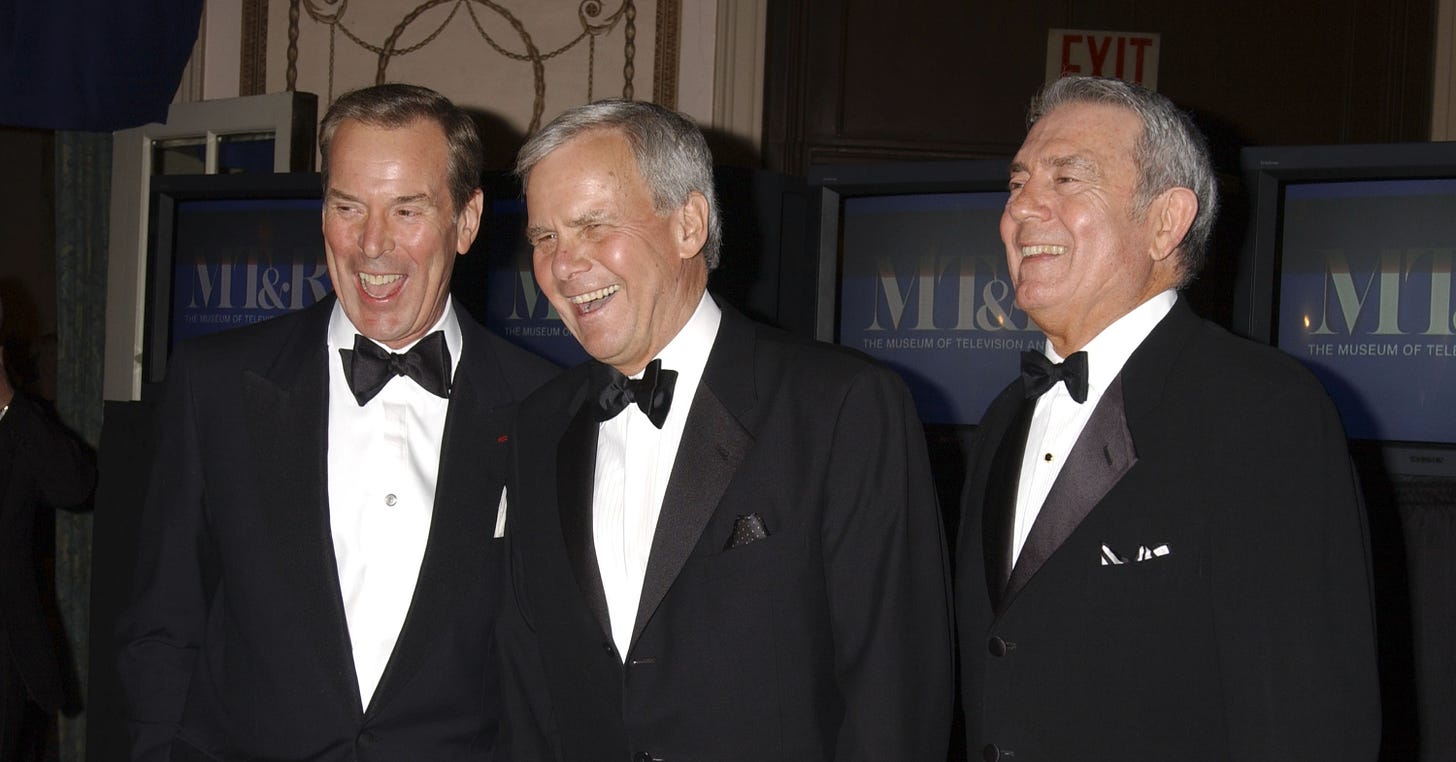
For the sake of this essay, I would rather dive into whether this indeed represented a “heroic age” of TV news, and what that means in the context of the past, and the present. If heroism is equated with size and scale, then it may have been that. The three network news divisions were large, global, and well-funded affairs —especially CBS News, which had bureaus all over the world and reporters, producers, camera-people, and other working journalists in many U.S. cities. Then there were the ratings, and the ability to shape the national narrative.
The Internet was non-existent when I first assumed the anchor chair; same with cable news. Both of those would emerge, grow, slowly at first, and then explode in importance and influence. Newspapers, especially local newspapers, were much more robust and numerous then than now, but the reach of the big ones, like the New York Times and Washington Post was still more regional and they were limited in their ability to shape daily news cycles, especially late in the day, by their printing schedules. (One note of context: there had been a truly “heroic age” of radio news, led by the great Edward R. Murrow.)
The combination of ratings and reach of television news brought a lot of power, which itself is a double-edged sword. I like to think that all of the networks on the main wielded the power we had in largely a responsible manner. We felt a duty to be honest brokers of information, and we knew that what we reported could have a big impact, in the United States and even abroad. There was a belief that there should be a healthy amount of reporting on foreign news, which was made easier to justify by the Cold War.
But for all our strengths there were an equal number of struggles. Yes we covered international stories but always through the lens of those who occupied the newsroom. A far greater diversity of thought and perspective (and background) was needed. When I look back to how LGBTQ rights were covered, and the environment, and women’s rights, and civil rights, and who was in front of the camera, and who was in positions of management, and who made the decisions on what we covered, and how, I see that there was great room for improvement. The result of our blindspots would not merit a designation of “heroic.”
To be sure, the digital age has brought with it great disruptions, challenges, and dangers in the way information is produced and consumed. I have written about it and spoken about it in many venues, as have others who are far wiser and more thoughtful on the topic than I am. And there were elements of the past that were “heroic,” especially for those of us who had the great privilege and fortune to be part of it. But there are also many heroic things about the present, even if it isn’t in the form of purely TV news.
Everyday, all over the world, reporters are risking their lives to get at the truth and hold the powerful accountable. These reporters represent the global population in all its diversity. With their perspectives, earned through life experiences far different from my own, they understand stories I would never have grasped. As I’ve said before, and will repeat many times again, I see one of the biggest problems to be the business model. TV news in the 1970s and 80s could be great in large part because it was well funded and supported. As for audience and reach, yes that has changed a lot. But I have also seen through my own recent experiences that new platforms, like cable, social media, newsletters, documentary film, as well as stalwarts like books, can provide exciting points of connectivity between even a well-worn reporter, like yours truly, and an audience of people like you.
So was there a “heroic age” for TV news? Perhaps. If so, is it gone? Certainly. But that doesn’t mean the future of journalism can’t be heroic in its own right, as well as more inclusive, more thorough, and more insightful at getting to the truth. And with that a new “heroic age” can rise again.
—Dan
Please consider subscribing to STEADY, if you have not already. Our goal is to build a vibrant digital community —the more voices, perspectives, and viewpoints that can add to the conversation, the merrier.

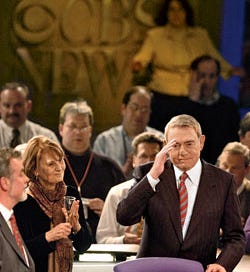

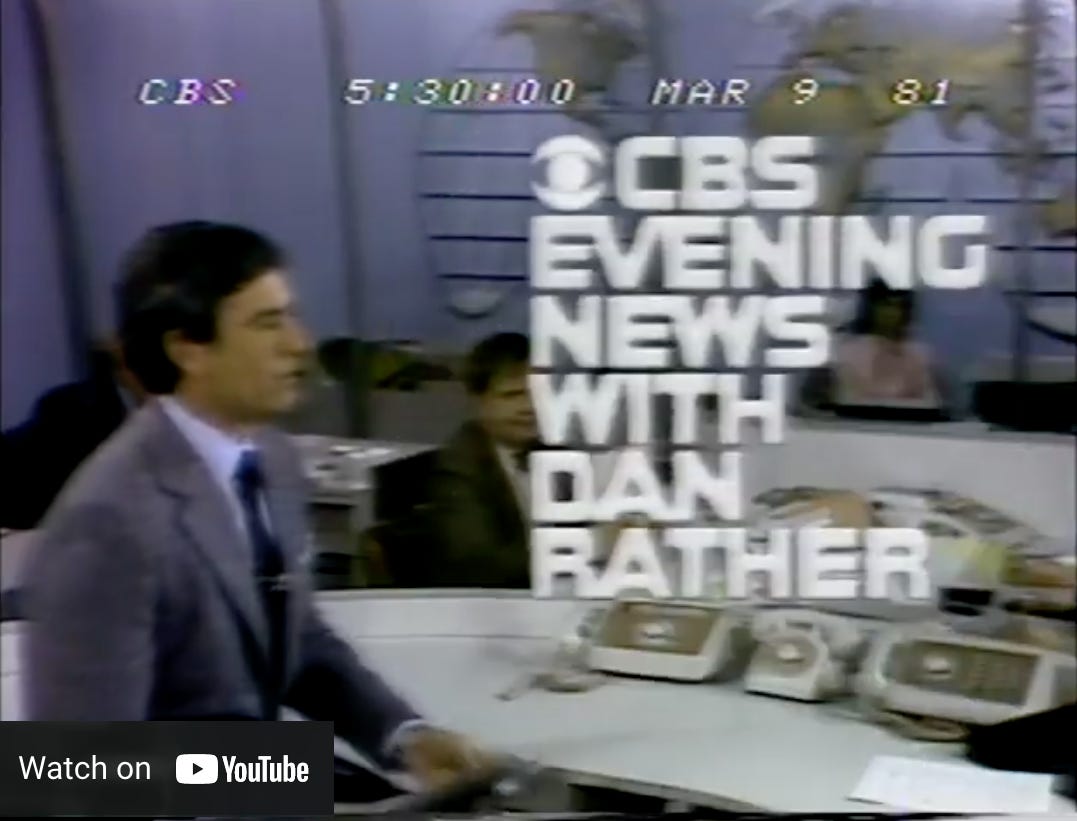

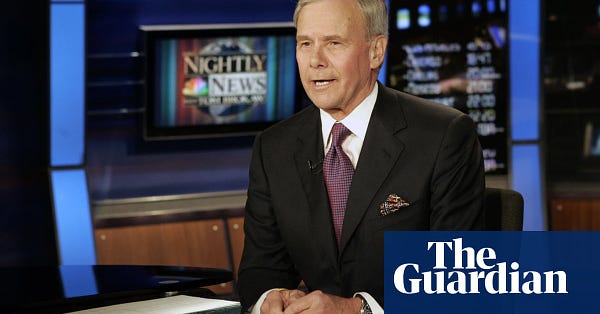
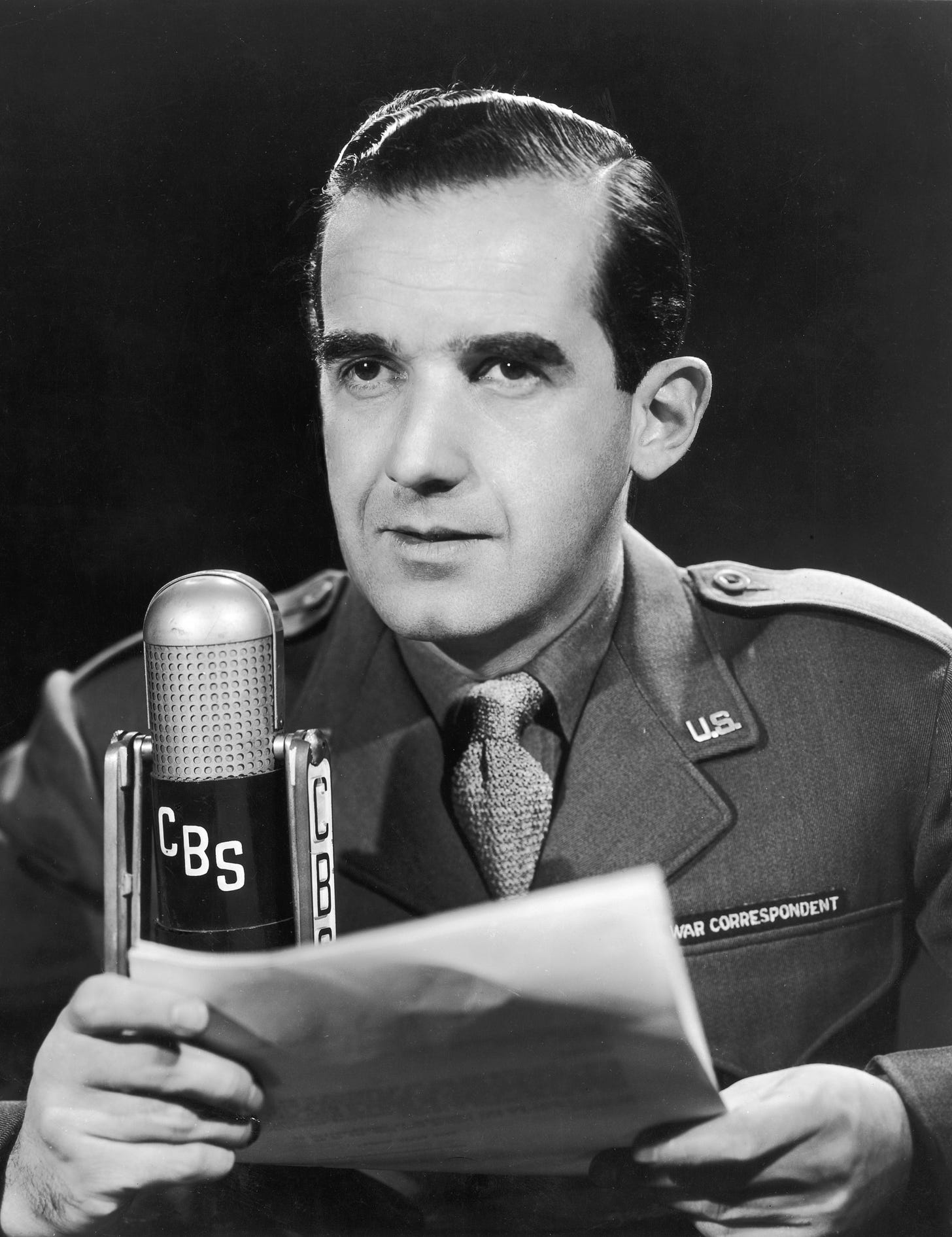
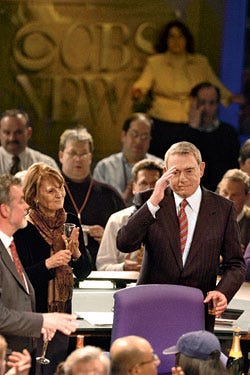
Story about your wife stopping at the gas station to get Dr. Peppers was one of the best I’ve ever heard. May I suggest that she pen 🖊 a guest column sometime in the future?
As someone who was there at CBS when Walter Cronkite passed the torch to you, I can say this is a very thoughtful and welcome article. I think you nailed it. Yes, those many journalists who are risking and losing their lives to cover stories all around the world are heroic. Yes, there were blindspots at the big 3 networks -- but you covered essential stories with panache and even objectivity in many cases. You provided authority and rewarded viewers with stability.